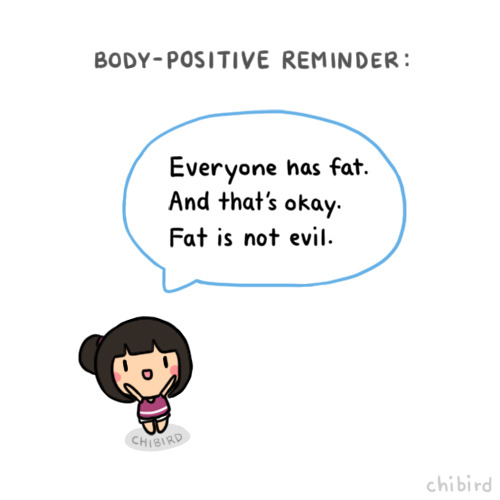I've mentioned the idea of set point theory many times before, but never truly explained what it meant. My beautiful friend Brie has made a wonderful analogy about how set point works before and I highly recommend that you all go check it out because frankly that's all you really need to know about set point, but for the ones who simply aren't convinced, who think that you are the magical exception, or who simply just wants a little dose of my medical geekiness, then this is for you.
I'm sure that most of you now know that I am fascinated by hormones (fun fact: currently I am leaning towards going into endocrinology for my medical career) and have written about it extensively as it applies to amenorrhea and carbohydrates. I strongly believe that your hormones will dictate (at least in part) every single bodily function whether you want them to or not - weight included.
Of course, body weight maintenance and metabolism is a highly complex interrelated network that involves many neural controls, organ systems, and hormonal signaling pathways, but for simplicity's sake I will just talk about three of the biggest players: leptin, ghrelin, and insulin. All of these hormones must be in sync and working correctly for us to achieve our optimal weight and set point.
I have mentioned leptin and ghrelin before in my carbohydrate mythbuster post, so I'll keep this recap short. Leptin is a hormone that is excreted primarily by our fat cells. When leptin levels are high, we feel less hungry. Ghrelin works in the opposite way; it is excreted by our stomach linings and when it is high, we are more hungry.
Insulin is our body's main fat storage hormone. It is excreted by the pancreas in response to an increase in blood sugar to help channel those sugars into our cells. Glucagon works in the opposite way and is highest in between meals to stimulate our liver to release excess glycogen (stored energy) or to help induce gluconeogenesis aka the conversion of lipids or amino acids into glucose. Basically glucagon makes sure that your cells always have a stream of energy even if you are not always eating.
Okay, yes - these hormones are all involved in hunger and energy storage, but how exactly do they help to keep out bodies at our set point? Let's break down down.
First, leptin is secreted in proportion to fat cell mass; as body fat mass decrease, leptin levels fall which will make you hungrier and suppress energy expenditures (metabolism and movement) until that fat mass is restored. Likewise, when fat mass increases, leptin levels will also increase and help to suppress your appetite naturally until the weight is lost again.
Next, ghrelin levels are found to be highest right before a meal and lowest right after a meal. Ghrelin levels have been known to upregulate somatostatin aka human growth hormone (which does exactly what its name implies) levels and studies have shown that increased ghrelin levels promote both food intake and fat gain in rats. Interestingly enough, ghrelin levels are typically very high in anorexic patients and very low in obese patients. Why? Because in the anorexic patient, the body is starved and desperate for extra energy so it creates a lot of ghrelin to get the patient to eat and store the energy fast while in the obese patient it has plenty of stored energy already so the body doesn't need to tell the patient to eat and store fat.
Now things are going to get a bit tricky. Insulin has been suspected to have a negative impact on ghrelin levels. Once again, this makes sense: after you eat, your insulin levels spike and so your body knows that it is getting food so it can now decrease ghrelin levels to make you feel less hungry. In addition, leptin also decreases insulin secretion levels which means high body fat = less insulin = less appetite and fat storage.
Still following me here? Let's completely simplify everything I've just told you. You're hormonally balanced and you:
1. Lose weight
Your leptin levels decrease and ghrelin levels increase. You feel hungrier and your insulin secretion levels increase. Your metabolism slows down and your body stores more fat to pull you back to your normal weight. You get back to your set point. The spiked insulin now makes your ghrelin levels go down, the increase body fat makes your leptin levels go up. Your metabolism increase and your hunger returns to normal again.
2. Gain weight
Your leptin levels increase and ghrelin levels decrease. You feel less hungry and your insulin secretion decreases. You not only have a faster metabolism, but you unconsciously move more, are less hungry, and your body is less willing to store fat. You eventually lose the extra weight you gained and are back at your set point. Leptin levels decrease and ghrelin increase. Your hunger increase to normal levels again and you maintain.
Of course, the set point weight-maintenance system is much, much more complicated than just these three little hormones, but I hope that this gives you just a small taste of exactly how complicated and stubborn your body is at maintaining homeostasis and its optimal weight.
Your body is much smarter than you think it is. As long as you take care of it, it will more than take care of you.





